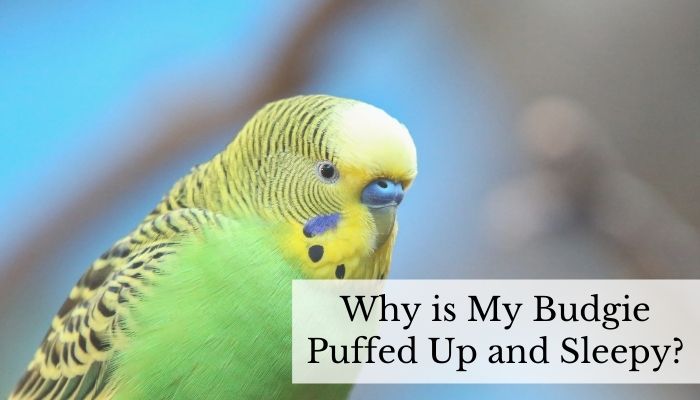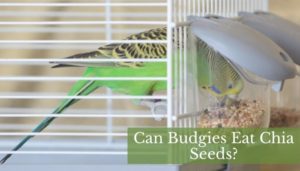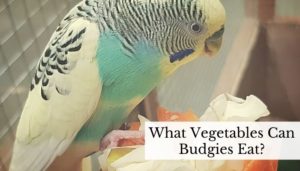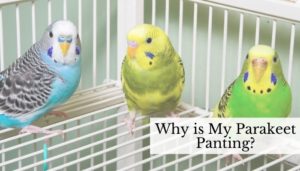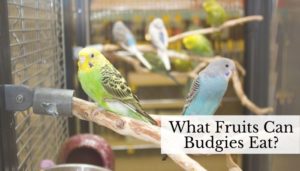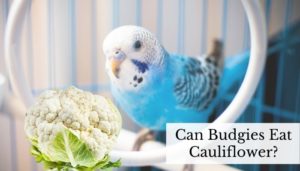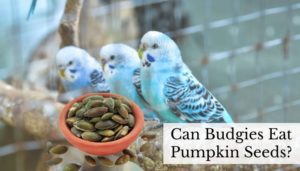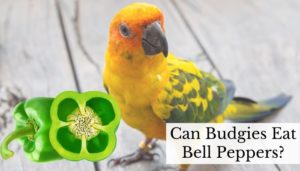Out of all the common family pets, budgies are easily one of the most popular, thanks to them being highly trainable and full of personality. And for many pet owners, there’s nothing quite like an active and playful budgie perching on a branch and singing all day long.
Sometimes, however, you might notice that your budgie is puffed up and sleepy, and this can easily cause worry on your part.
So, if you’re wondering, why is my budgie puffed up and sleepy?
Well, birds like budgies puff for different reasons, and context is everything. However, if they are puffing and more sleepy than usual, it could be a sign of something more serious, like a disease. In that case, it’s best to check with your local trusted veterinarian to see what can be done.
That said, puffing up isn’t always a sign of disease, and this article will go over the different reasons behind puffed-up budgies and what you can do as a bird owner in such cases.
How Do Budgies Puff Up?
Sometimes, you may notice that your pet budgie is puffing up, making them look like an adorable ball of feathers. Birds do this for various reasons, and this ability comes from the fact that the base of each dead feather sits on a skin follicle. Because of this, a bird can use its tiny muscles to either fluff its feathers up or part them.
But why do birds do this in the first place? Well, it all has to do with context.
More reading: Can Budgies Eat Chia Seeds? Everything You Need To Know
My budgie is puffed up and sleepy? Here are the reasons why
As mentioned above, there are plenty of reasons behind your pet budgie puffing up. And at first glance, you might think that it’s cute and adorable.
However, it’s essential to understand that, like many birds, budgies communicate through their body language, so carefully watching what your pet is doing while they’re puffed up is key to understanding what they’re feeling.
Commonly, however, budgies puff up their feathers for these reasons:
Your Budgie is Cold
Most of the time, your budgie may be cold. Budgies use puffing to conserve body heat, especially during colder and frigid days. As such, budgies use puffing to trap as much air as possible, helping them stay warm and comfortable.
If this is the case, you can put their cage somewhere warmer to help fix the issue.
Your Budgie Wants a Bath
Budgies are beautiful birds, and it’s partly one of the reasons many owners want to keep them around as pets. However, birds are animals, and that means they are prone to getting dirty.
So, when budgies feel the need to bathe or groom themselves, they’ll often puff upright to help get rid of any dirt on their bodies. Sometimes, it can also be dust or soil. There are also moments when your budgie is simply trying to straighten its feathers, especially when it gets uncomfortable for them.
Your Budgie is Happy and Excited
Happy budgies also tend to puff up while singing a song, talking, or mimicking sounds that they often hear.
In this case, their puffed-up feathers indicate excitement, and they are simply communicating it through their feathers. When this happens, you should give your birds attention and bond with them to help them stay happy and healthy.
If you can’t always give them attention, providing them with toys will also help a lot. But if you’re not sure what toy to give your budgie, you can always do some prior research or ask your local veterinarian. In this case, size, material, and paint are all factors you need to consider.
Your Budgie is Tired and Sick
Unfortunately, puffing can also be a sign of sickness or disease, especially if your pet has been doing it all day. The problem is, birds usually don’t show symptoms to not look vulnerable to predators. Besides puffing, a sick bird will also exhibit other symptoms, such as:
- Sneezing
- Excessively sleeping
- Lethargy
- Weight Loss
- Temperament Changes
If you are sure that your pet budgie is sick, then you may do the following to help ease the condition:
What to Do if Your Pet Budgie is Sick
Heat and Humidity
Birds have a fast metabolism, which means they expend lots of energy and resources to maintain their body temperature.
If your budgie is sick, you can help it by keeping heat between 85 and 90 degrees Fahrenheit (26-35 degrees celsius). As your pet begins to get better, you can slowly turn the heat by 5 degrees per day until it’s back to room temperature.
If this isn’t available, you can also place its cage in the bathroom and steam up the room through a hot shower.
Fluid and Feeding
Sick birds usually avoid drinking, so make sure your pet isn’t dehydrated by using a syringe or a dropper regularly. As for what to give your pet, you can use apple juice, grape juice, or boiled water with a bit of honey.
Make sure to hand-feed the bird as well, as a starving bird can die in a short amount of time. During this time, pick soft and easy foods to digest, like baby food or rice cereal.
Rest
Make sure your pet gets proper rest, so do what you can to help promote this. Put the cage in a quiet place and cover it with a cloth. If there is another bird with your sick budgie, then it’s best to separate them for the time being.
During this time, it’s also best to contact your local trusted veterinarian for a full consultation. If the vet prescribes medication like antibiotics, make sure your bird is full before taking any of it. As your bird becomes better, gradually return them to their normal routine until all is well.
Conclusion
When it comes to pet birds, many of their actions are contextual, so it’s best to check other signs to understand what your bird is trying to communicate fully.
Puffing up is entirely normal if your bird is healthy and there is nothing to worry about. However, if it’s a sign of disease or sickness, it’s best to check for other symptoms before immediately consulting your local vet.
